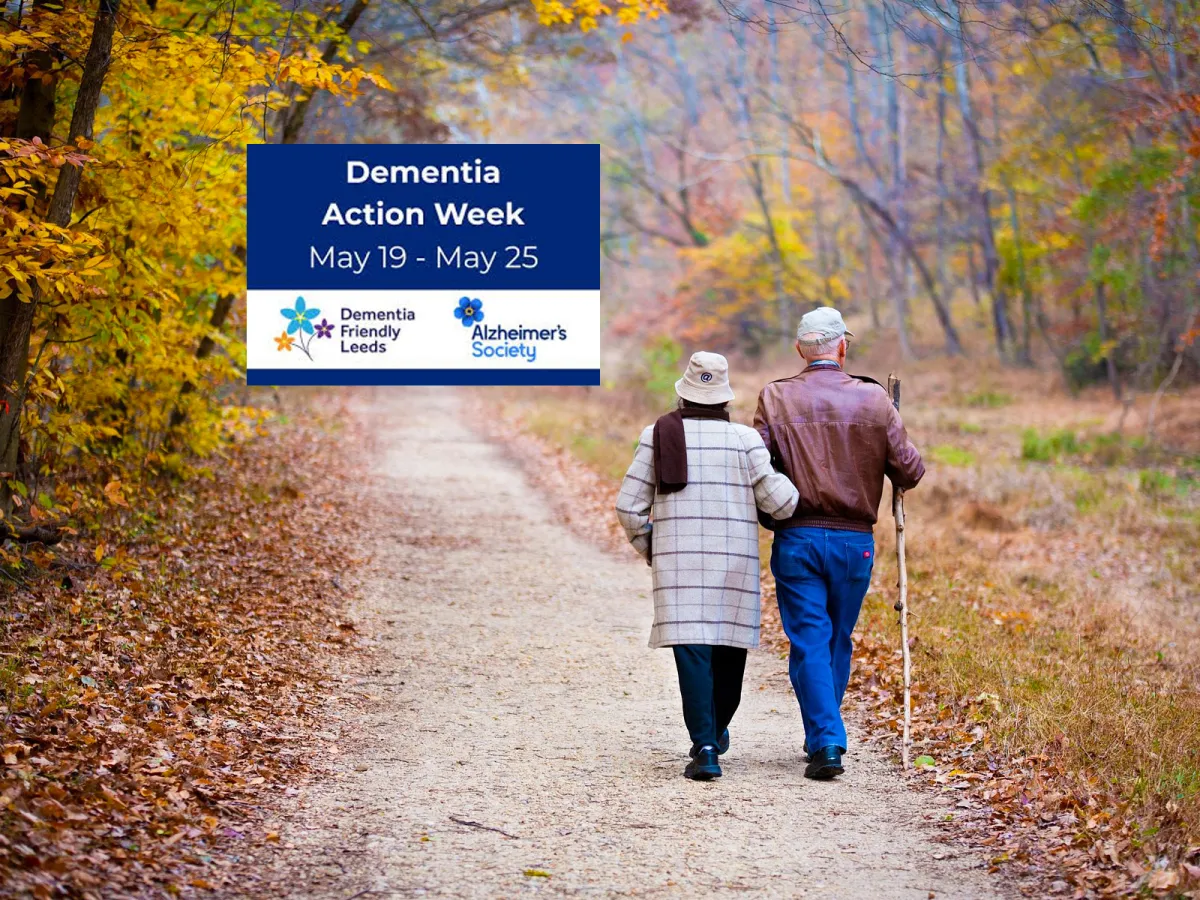
Understanding Alzheimer’s and Continuing Healthcare
Alzheimer’s – the Most Common Form of Dementia
As part of our Dementia Action Week series, we’ve been exploring the different types of dementia and what they mean for individuals, families, and long-term care planning. This article focuses on the most common form - Alzheimer’s disease.
*Please note that this blog post is for information purposes only, and should not be a substitute for medical advice. If you suspect you or a loved one has Alzheimer’s disease, please seek advice from a medical professional.*
At Winston Solicitors, our NHS Continuing Healthcare (CHC) specialist, James Urquhart-Burton, regularly helps families understand how a diagnosis of Alzheimer’s can impact care needs and eligibility for NHS funding. With so many myths, fears, and uncertainties around dementia, this guide aims to break down the facts in a warm and accessible way, so you feel more informed and empowered to plan for the future.
For expert advice on Continuing Healthcare Funding call 0113 320 5000
What Is Alzheimer’s Disease?
Alzheimer’s disease is a progressive neurological disorder that affects the brain, leading to a gradual decline in memory, reasoning, and daily functioning. Over time, the disease also causes changes in personality and behaviour.

Alzheimer’s is the most common cause of dementia, accounting for 60–70% of all dementia diagnoses in the UK. Most people affected are over the age of 65, but early-onset Alzheimer’s can begin much earlier, sometimes in a person’s 40s or 50s.
How Alzheimer’s Affects the Brain
Alzheimer’s disease damages and eventually destroys brain cells. It typically starts in the hippocampus, the area responsible for forming new memories, before spreading to other parts of the brain that control language, decision-making, emotions, and movement.
As more areas of the brain are affected, individuals lose the ability to manage everyday tasks and eventually require full-time care. In the later stages, Alzheimer’s can also affect basic physical functions such as swallowing, walking, or even controlling bladder and bowel movements.
Symptoms of Alzheimer’s
Alzheimer’s develops gradually, and symptoms vary from person to person. Some of the most common include:
- Memory loss, especially of recent events or conversations
- Difficulty concentrating or solving problems
- Struggling with familiar tasks, such as using household appliances
- Confusion about time or place
- Language problems, such as forgetting words or repeating questions
- Changes in mood, behaviour, or personality
- Withdrawal from social activities or hobbies
These symptoms usually start mildly but worsen over time. Families often notice subtle changes long before a formal diagnosis is made.
For expert advice on Continuing Healthcare Funding call 0113 320 5000
Stages of Alzheimer’s Disease
Alzheimer’s is typically divided into three stages:
1. Mild (Early Stage)
- Forgetting names or appointments
- Misplacing items
- Trouble finding the right words
- Still independent, but starting to need reminders and support
2. Moderate (Middle Stage)
- Increased confusion
- Difficulty recognising friends or family
- Needing help with dressing, hygiene, or meals
- Wandering or getting lost
- Behavioural changes such as suspicion or agitation
3. Severe (Late Stage)
- Loss of communication abilities
- Difficulty swallowing or walking
- Incontinence
- Total dependence on carers for all aspects of daily living.
Causes and Risk Factors
Scientists are still working to understand the exact causes of Alzheimer’s, but it’s believed to result from a combination of:
- Age: The most significant risk factor
- Genetics: A family history of Alzheimer’s increases risk
- Health conditions: High blood pressure, heart disease, diabetes, and obesity
- Lifestyle factors: Smoking, poor diet, lack of exercise, and social isolation
- Head injuries: Past trauma to the brain can raise risk
Inside the brain, two key features are found in people with Alzheimer’s:
- Plaques: Clumps of a protein called beta-amyloid that build up between nerve cells
- Tangles: Twisted strands of another protein called tau that form inside brain cells
These disrupt communication between brain cells and eventually lead to cell death.
Diagnosing Alzheimer’s
There’s no single test for Alzheimer’s. Instead, diagnosis is made through a combination of:
- Medical history
- Cognitive assessments
- Physical and neurological exams
- Blood tests to rule out other conditions
- Brain scans (MRI or CT) to identify shrinkage or abnormalities
Early diagnosis can make a huge difference, allowing individuals and families time to plan, seek support, and explore treatment options.
For expert advice on Continuing Healthcare Funding call 0113 320 5000
Treatment and Support
While there’s currently no cure for Alzheimer’s, some treatments can help manage symptoms and improve quality of life.
Medications may include:
- Cholinesterase inhibitors (e.g., donepezil, rivastigmine) to help with memory and thinking
- NMDA receptor antagonists (e.g., memantine) for more advanced stages.
In recent years, newer drugs like lecanemab have shown promise in slowing early-stage disease progression, though they’re not yet widely available.
Lifestyle interventions can also help:
- Regular physical exercise
- Healthy diet (e.g., Mediterranean-style)
- Social engagement and structured routines
- Cognitive stimulation (games, music, reminiscence therapy)
Support for carers is equally vital. Being a full-time carer for someone with Alzheimer’s can be physically and emotionally exhausting. Local authorities, charities, and legal professionals can all play a role in helping families cope.
When Is Continuing Healthcare Appropriate?
As Alzheimer’s progresses, care needs can become intense, complex, and unpredictable. At this point, it’s worth exploring whether your loved one might be eligible for NHS Continuing Healthcare (CHC). CHC is a fully funded package of care provided by the NHS.
CHC is not means-tested, which means eligibility depends solely on the person’s health needs, not their finances. If eligible, CHC can cover care costs whether the person is in a residential home, nursing home, hospice, or receiving care at home.
Eligibility is based on factors such as:
- Severity and complexity of care needs
- Level of risk involved in managing those needs
- Frequency and unpredictability of symptoms
In Alzheimer’s cases, CHC is particularly relevant where:
- The person is in the later stages and completely dependent on carers
- Challenging behaviours or aggression pose barriers to care
- Skilled nursing interventions are needed for continence, mobility, nutrition, or medication.
How Winston Solicitors Can Help
Understanding Alzheimer’s and navigating the care system can feel overwhelming. That’s why our experienced CHC team, led by James Urquhart-Burton, is here to help you:
- Determine whether your loved one may qualify for CHC
- Navigate the assessment process with confidence
- Challenge decisions and handle appeals if CHC is wrongly denied
Our Wills & Probate team can also help you to put in place Wills, Lasting Powers of Attorney, and other legal safeguards. We work with families to reduce stress, protect assets, and ensure the right care is in place at the right time.
Final Thoughts for Dementia Action Week
Alzheimer’s is a difficult and often heart-breaking condition, but knowledge is power. The more we understand about how it works and what support is available, the better equipped we are to help those affected live with dignity and compassion.
If you’re caring for someone with Alzheimer’s and feel unsure about how to plan for the future, whether legally, financially, or practically, we’re here to support you.
Contact the CHC team to discuss Alzheimer’s and Continuing Healthcare.
We can also help with Health and Welfare LPAs. Contact our Wills and Probate team today to discuss planning for the future.

